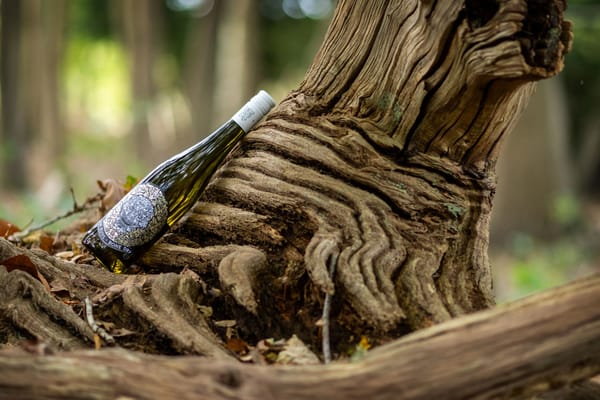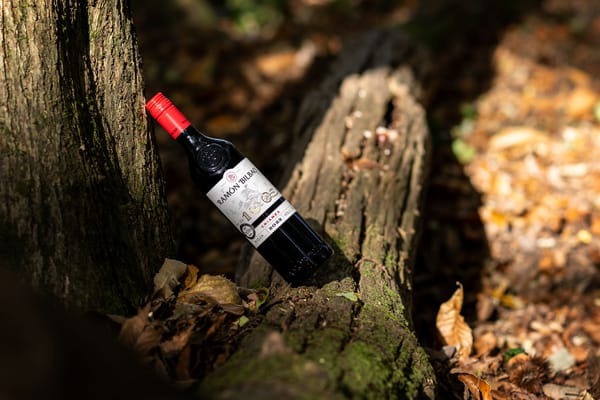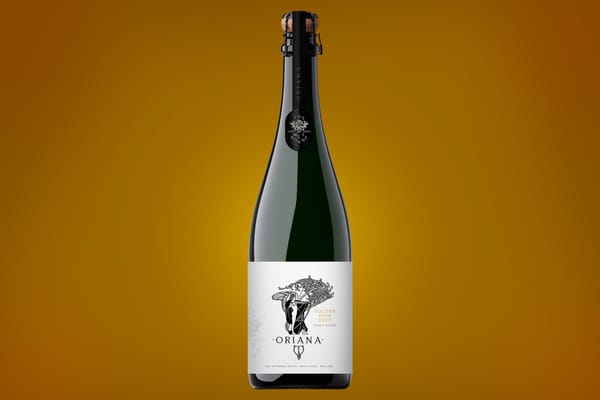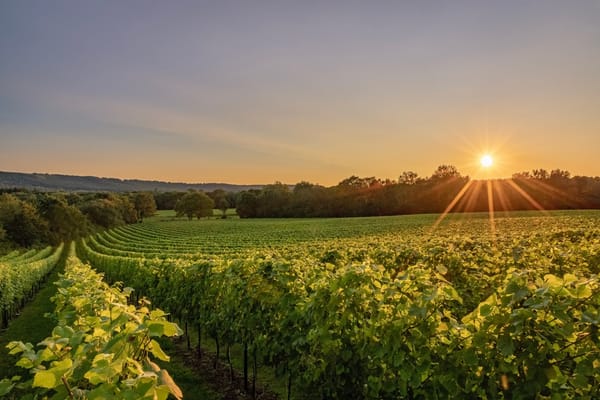Graham Beck: South Africa's Cap Classique Pioneer
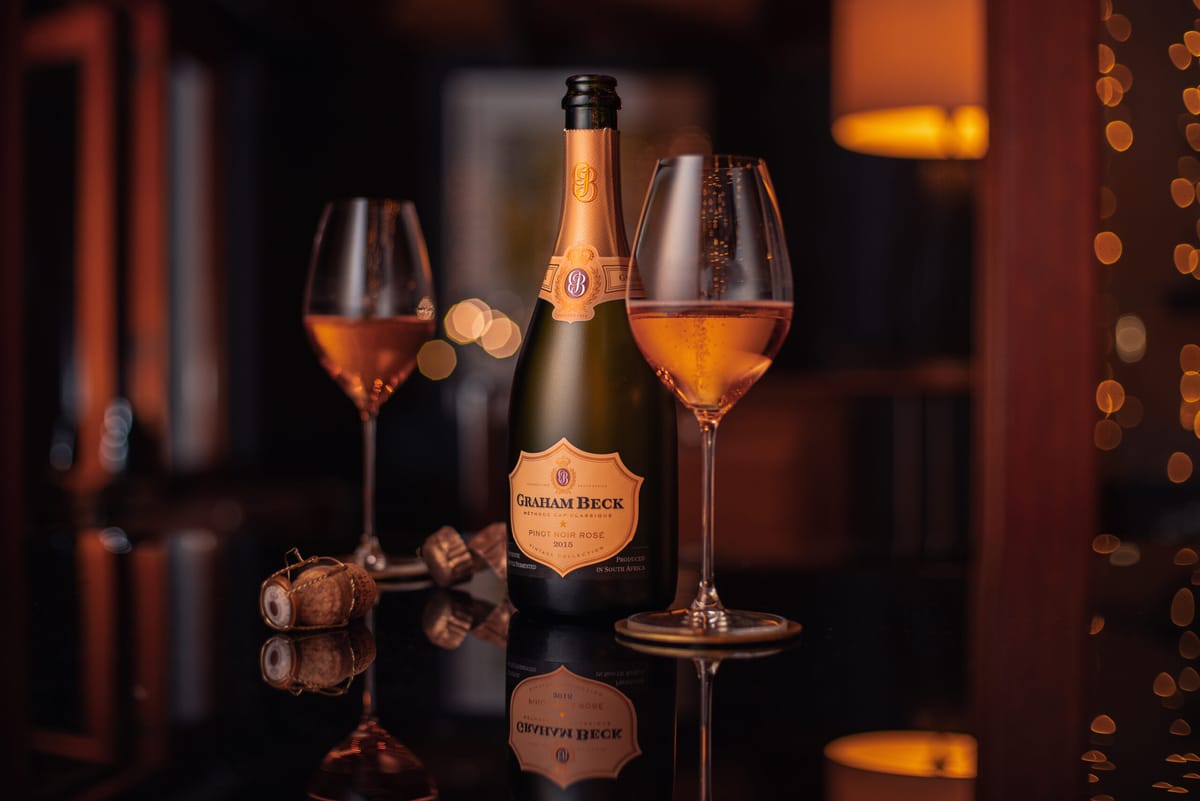
Graham Beck is one of the most highly regarded producers of South Africa’s Cap Classique, the country’s answer to Champagne. With a reputation for exceptional sparkling wines made using the traditional method, Graham Beck has become a favourite for many, especially with their quality to price ratio.
The Robertson Valley, about two hours east of Cape Town, is the heartland of Graham Beck’s vineyards. The region is ideal for growing the classic Champagne varietals, Chardonnay and Pinot Noir, thanks to its cool climate, well-draining limestone soils. These conditions allow for slow ripening, which enhances acidity and preserves those wonderful fresh fruit flavours. To meet global demand, fruit is also sourced from other vineyards across the Western Cape, including coastal areas to give additional minerality and complexity to the wines.
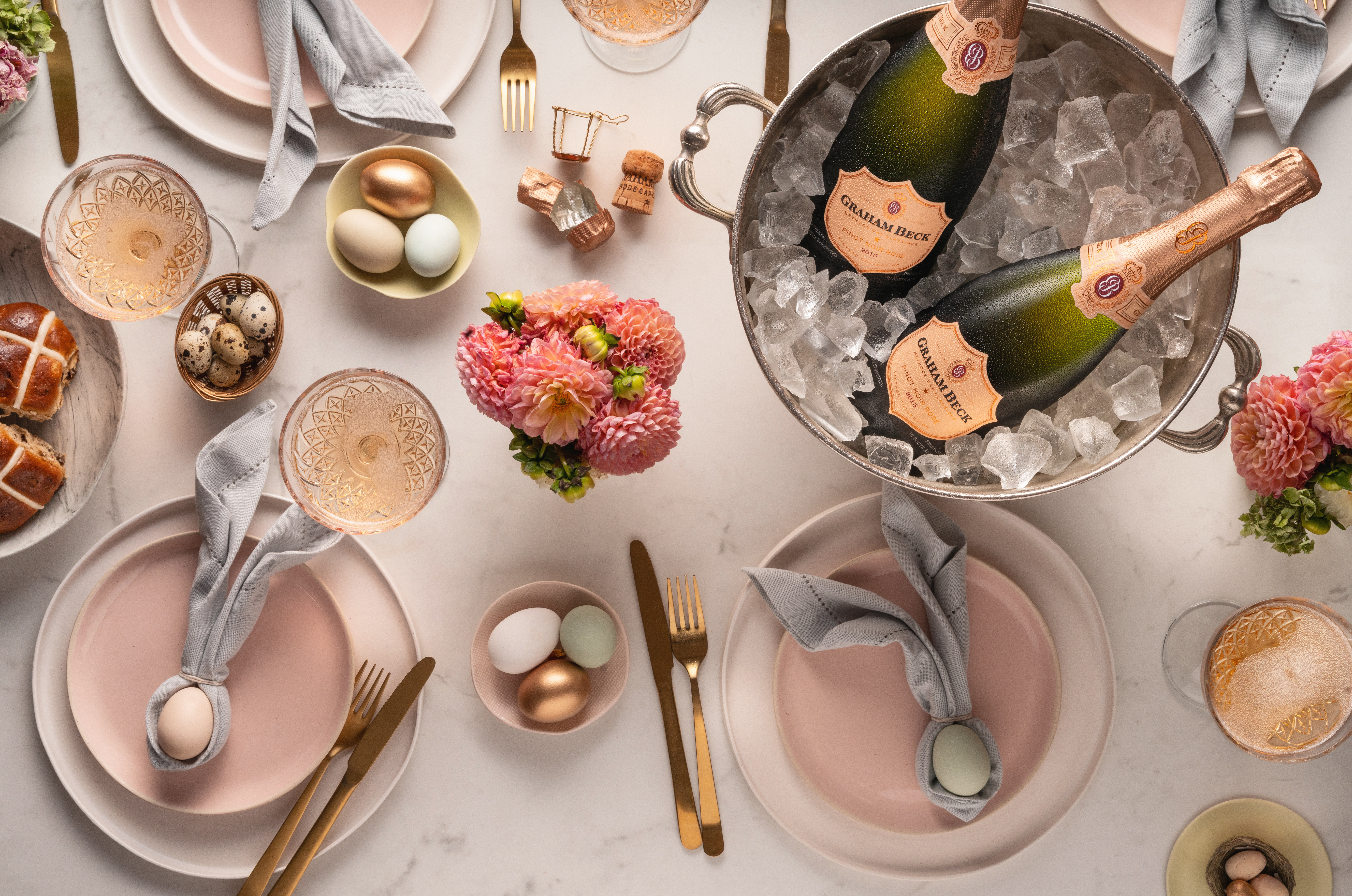
Robertson’s diurnal range is one of the widest in the Western Cape. Afternoons bring a cooling breeze to offset the morning heat.. Cellarmaster Pieter Ferreira explains, “We can have a 38-40 degree Celsius day but at night we may need to dress warmly. It’s precisely this diurnal shift that is a significant contributor to the exceptional quality of the fruit.”
The foundations for the success of the Graham Beck brand were laid in 1983 when the late Graham Beck purchased Madeba Farm, located just outside Robertson. A successful businessman and philanthropist, Beck had an ardent ambition to establish a world-class winery in this area. His investment in a state-of-the-art cellar and groundbreaking tasting facility helped cement Graham Beck come to be what it is today.
The first vintage of Graham Beck was produced in 1991 and gained recognition for its finesse and complexity. The quality has not gone unnoticed, as over the years, Graham Beck has been the celebratory drink of choice for many high-profile events, including Nelson Mandela’s inauguration in 1994 and Barack Obama’s presidential victory toast in 2008. Quite the achievement and placing the wines on a global stage.
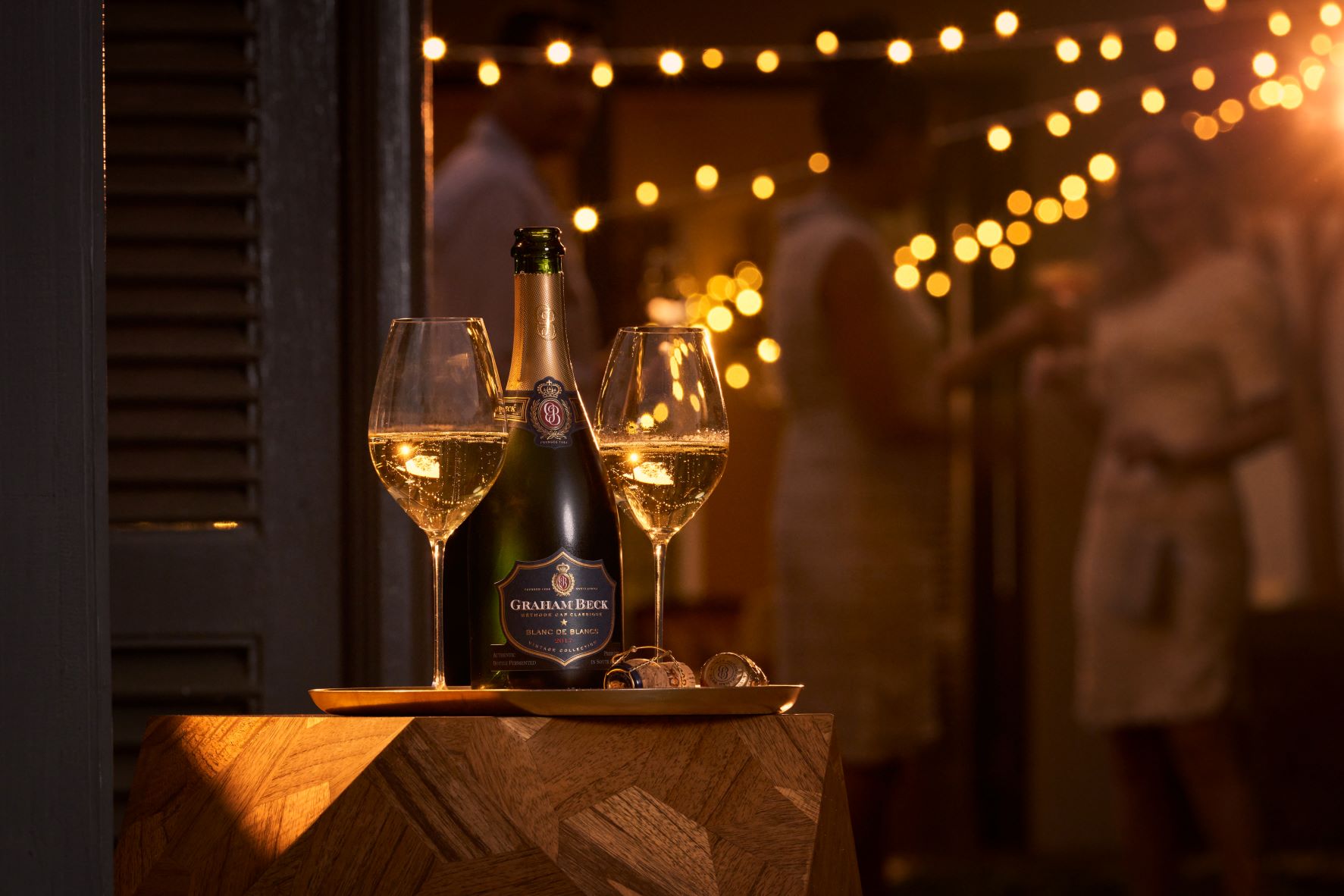
Cellarmaster Pieter “Bubbles” Ferreira joined the estate in 1990 and has been with the team from the very first vintage. His dedication and expertise have been instrumental in establishing Graham Beck as a brand. Pieter has recently transitioned into the role of Chief Operating Officer after 32 years at the helm of the cellar. “For over three decades, Graham Beck has been my home. I was there for the very first vintage that took place under the stars, and I look forward to seeing what is written in them for me next,” says Pieter.
With an impressive track record of experience both locally and internationally, Pierre de Klerk took over as Cellarmaster in 2022 after working under Pieter’s mentorship for 12 years. Pierre believes Cap Classique is the most intricate and complex wine style to produce. “There is no other wine style with so many variables, intricacies, and complexity involved in the production process. The joy of producing a finely balanced, exquisite Cap Classique is boundless. Crafting world-class sparkling wines demands undivided attention, passion, dedication, and creativity,” he explains.
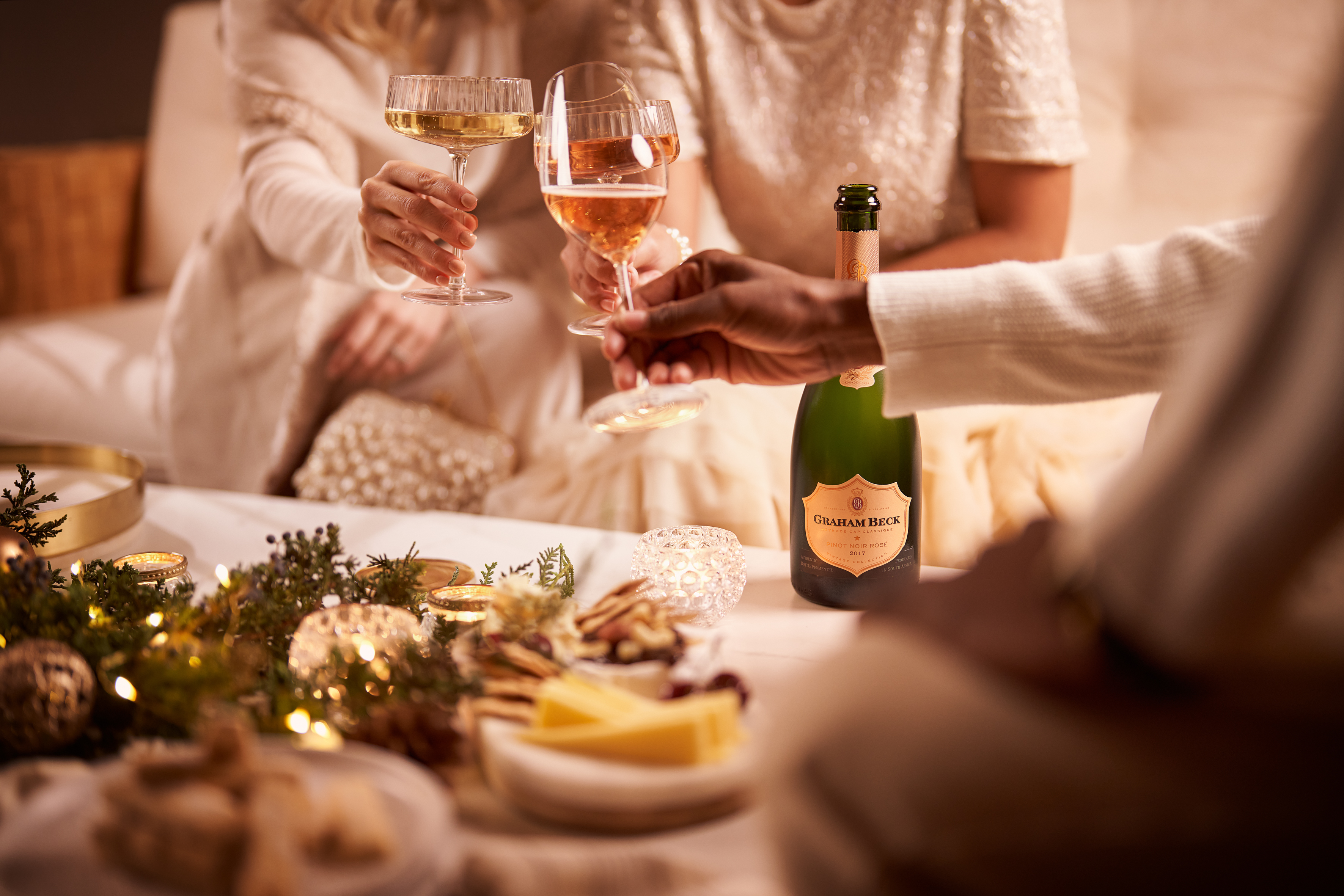
The traditional Champagne method is followed here, involving a secondary fermentation in the bottle to create a fine mousse and develop depth of flavour. Extended time on the lees is a hallmark of the estate’s approach. While the minimum required aging for Cap Classique is 12 months, Graham Beck’s non-vintage wines typically rest on the lees for 15 to 18 months, while vintage and prestige cuvées often exceed four years. This helps develop the autolytic notes of brioche, almond, and pastry that I love and seek out. For me, these are what make a sparkling wine great.
As you would expect, care is taken to match the distinctive micro-climates and diverse soil types to the most suitable varietals. Something we are still very much discovering in the UK. The estate’s vineyards include four unique Pinot Noir vineyards in Elgin, Durbanville, Stellenbosch, and Robertson, selected for their diversity, complexity, and depth of flavour. The Chardonnay grapes for the Blanc de Blancs originate from Graham Beck’s estate in Robertson, where the vines grow in limestone-rich soils. All grapes are hand-picked in the early mornings and whole-bunch pressed.
GRAHAM BECK PINOT NOIR ROSE 2018
This 100% Pinot Noir Cap Classique is a wine that I particularly love. The fruit is sourced from premium vineyard sites where limestone-rich soils contribute to the wine’s finesse and bright acidity. A long, slow ripening season in 2018 allowed for exceptional flavour development while preserving the essential freshness. The wine spent four years on lees, adding complexity while maintaining a lively fruit character.
It has a delicate salmon-pink hue in the glass and has aromas of strawberries, raspberries, alongside hints of brioche and almond. On the palate, it delivers beautiful depth and creaminess, with crisp acidity and a fine, persistent mousse. The finish is long, fresh, and lightly toasty. This is a sparkling wine I truly enjoy.I tried it with an Asian inspired salmon dish and it worked perfectly.
GRAHAM BECK BLANC DE BLANCS 2018
Made from 100% Chardonnay, the 2018 vintage benefited from a warm yet balanced growing season, ensuring full ripeness without sacrificing acidity. The wine spent four years ageing on lees, adding texture and complexity.
It has a pale golden straw colour, with aromas of green apple, lemon zest, and toasted brioche, alongside flinty, chalky minerality. The palate is precise and racy, offering flavours of citrus, pear, and subtle hazelnut, layered over a fine, persistent mousse. A backbone of bracing acidity keeps it fresh, while the lees ageing adds a lovely creaminess that lingers on the finish. I made a creamy chicken, gorgonzola and pine nut risotto to accompany it and was delighted with the results.
Whether you are celebrating a milestone or simply indulging in a glass of something special, both of these wines rival some of the finest sparkling wines produced in the world. I suggest a blind tasting the next time you have a party, alongside a variety of other sparkling wines, to see just how well they perform.
The wines are readily available including Majestic Wines.

